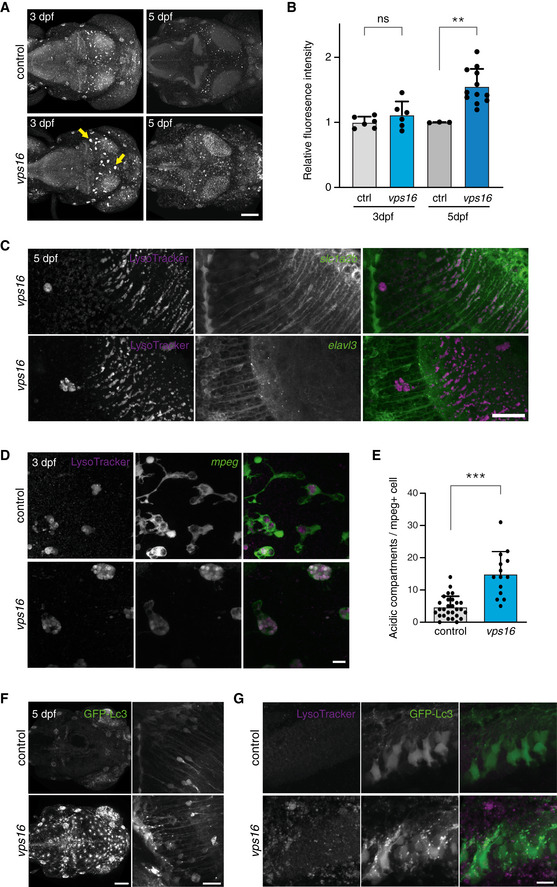Figure 8
LysoTracker‐stained acidic compartments in zebrafish larvae brains at 3 and 5 dpf. Total signal was increased across the brains of LysoTracker signal colocalizes with the astroglial reporter The puncta indicated in A exist within cells expressing the Microglia at 3 dpf contain an increased number of acidic compartments as compared with controls. Global GFP‐Lc3 signal is increased in unstimulated Magnified view of the anterior hindbrain showing numerous GFP‐Lc3 puncta in the
Data information: Scale bars 100 μm in (A, F left), 30 μm in (C), 20 μm in (F right), and 10 μm in (D, G). Bar graphs represent data as mean ±SEM. Statistical comparisons by Mann–Whitney

